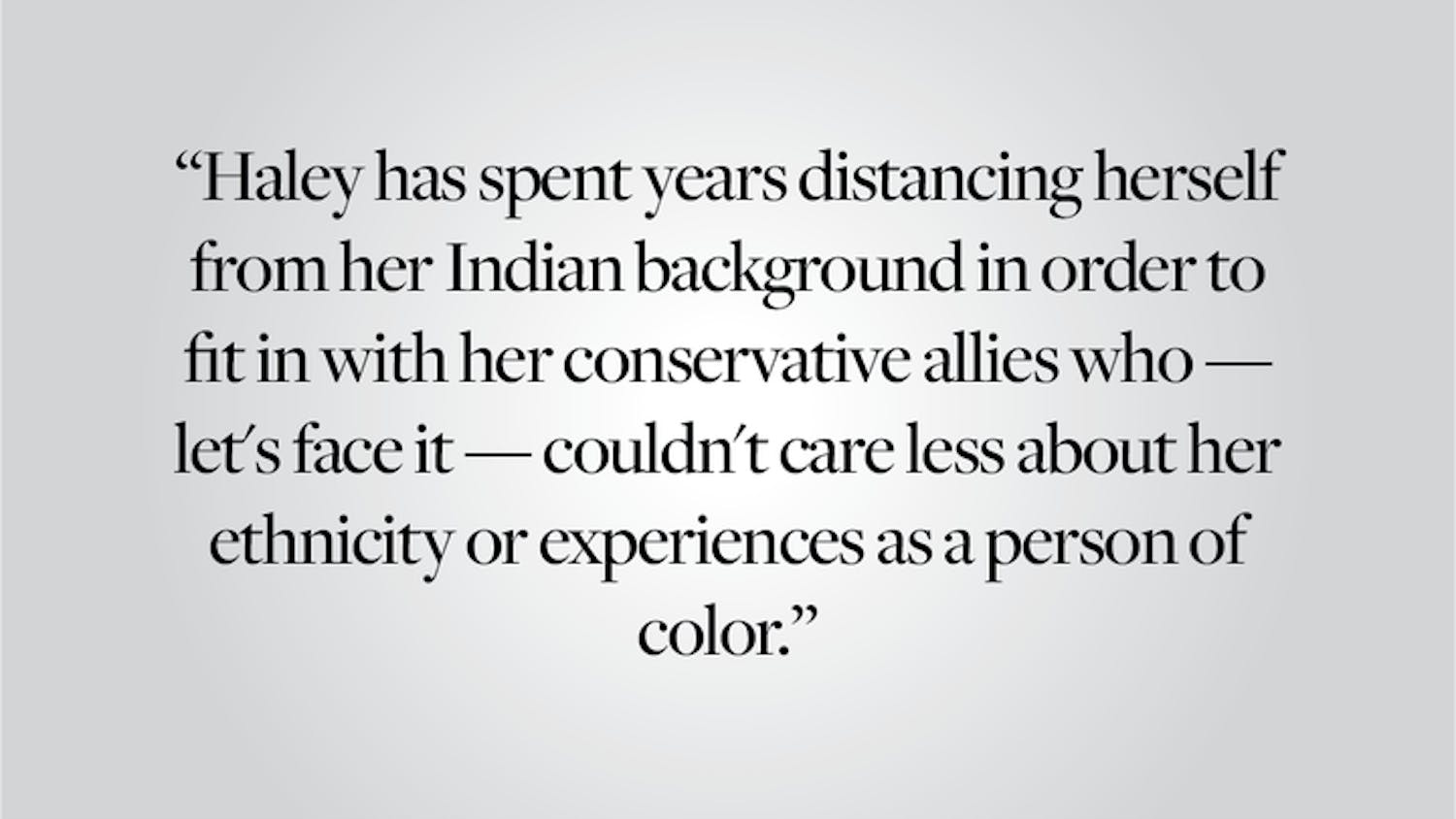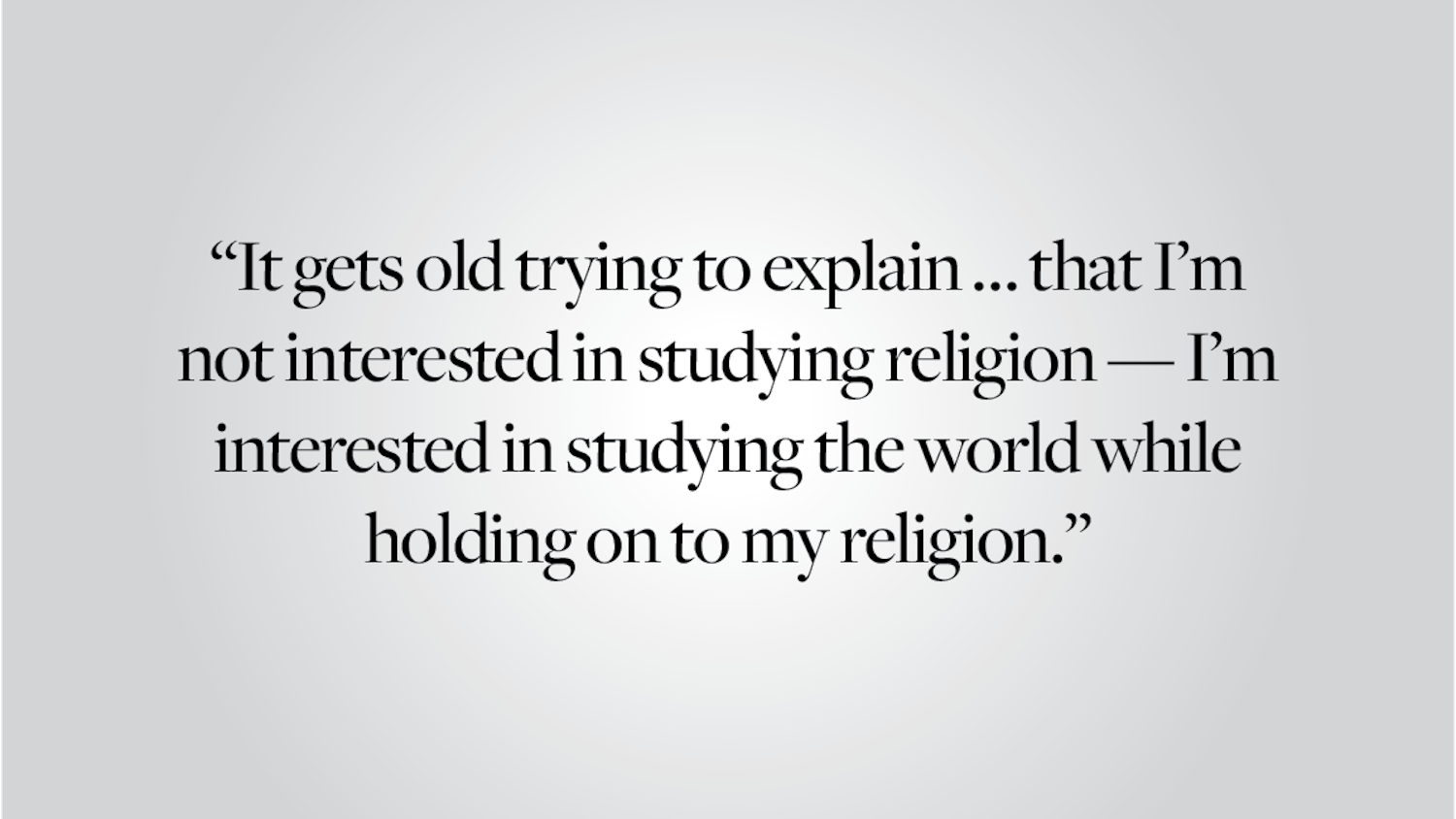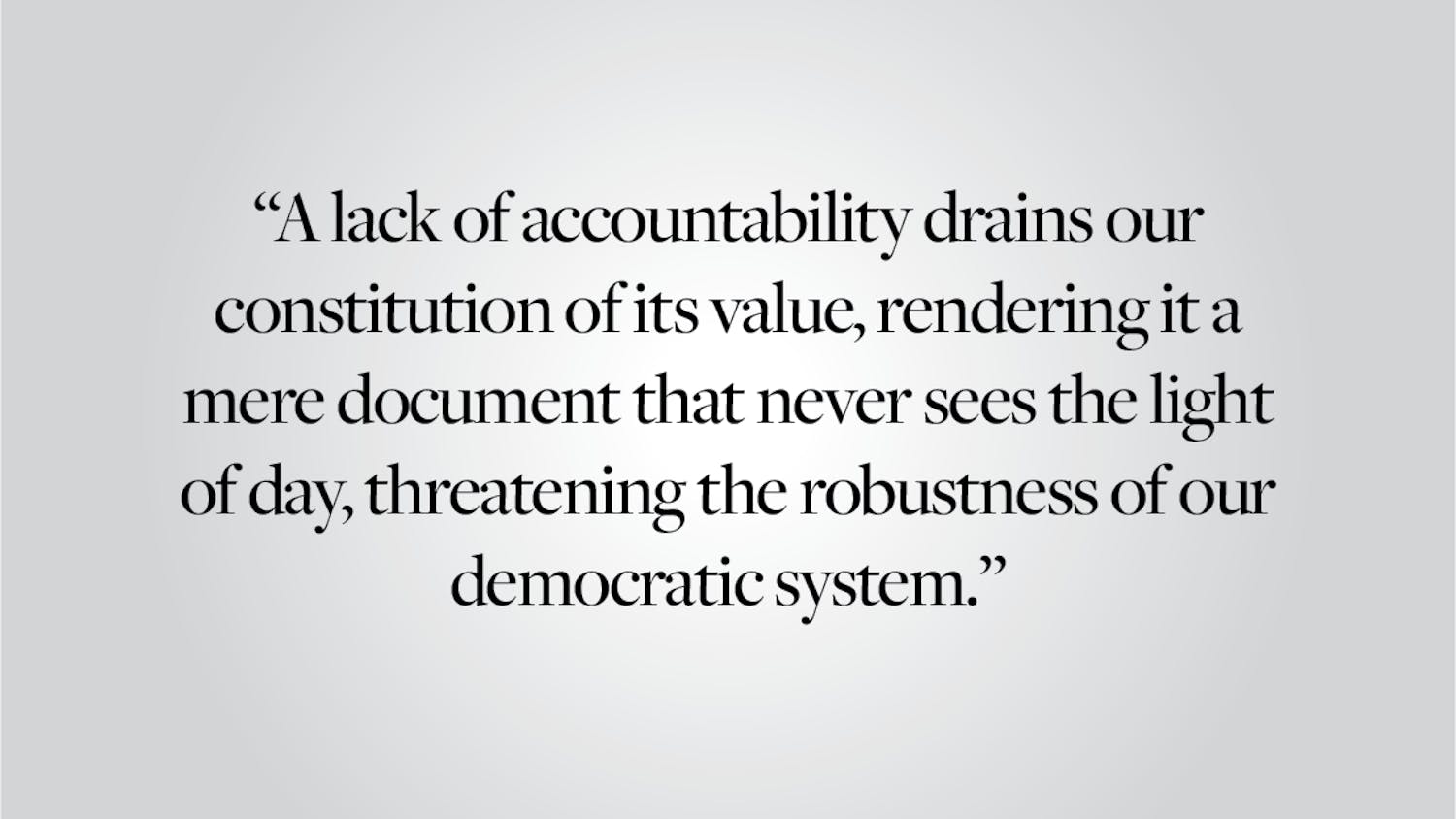During the spring semester of 1989, a series of racist incidents — ranging from graffiti to slurs yelled from windows to physical violence — took place at Brown. The impact on the community was deeply felt. A campus meeting was held in Sayles Hall where students, faculty and staff voiced their feelings of anger, sadness, fear, commitment to change and support for one another. One of us (Executive Vice President for Planning and Policy Russell Carey ’91 MA’06) remembers a student who basically said, “Expect to be in this room again and again discussing the same issues after whatever controversial and hurtful incident comes next, with little to no expectation that anything will change.”
As many of us in the University leadership reflect on the events of this week, we realize that these conversations (or their virtual equivalents) have been repeated many times — at many college campuses — as successive generations of students have faced similar challenges, hurt and harm. A persistent theme at Brown is reconciling the student experience we aspire to achieve with the actual Brown experience that many students live every day. We want students to enjoy unbridled academic opportunities, fulfilling co-curricular activities, healthy social lives and constantly available new people to meet, new ideas to explore and challenge and an equitable, intrinsic, bedrock commitment to social justice and equity.
While we hope — and believe — that this Brown experience can be attained, clearly it is not the reality of our collective and individual experiences on this campus. Like any human institution, a university is a reflection of the individuals who created it, who have sustained it and who steward it today. Such an entity — as a whole and as individual members — makes mistakes, enables privilege, sustains structural inequity through racism and sexism and other forms of oppression and repeats those behaviors no matter how well intentioned its constituents and leaders are to do better.
Over the past week, discussions about underlying questions of power and privilege have again spread across campus because of columns appearing in The Herald. The questions being discussed are important, and this is a community issue that affects all students, faculty and staff. The Herald is an editorially independent institution with significant power (it is the first publication many of us read every day it is published). That power comes with responsibility, and so the students who lead that institution must exercise that responsibility in a manner cognizant of their power and consistent with the values and reflective of the breadth of the community they serve.
At the same time, The Herald, like any student organization, is an educational activity. Students learn by doing, and doing inevitably involves mistakes. The test of character of any individual or institution is the learning that follows the mistake. In our view, the current leadership of The Herald has forthrightly owned that they caused harm and did not live up to the expectations of the Brown community. They have committed to learning from what took place and enacting meaningful, positive change going forward. We hope that, as students, they will take this opportunity to learn more, and also in greater depth, about the historical and current realities of race and inequity. We recognize that their apology and stated commitment to change may not be enough for all members of our community, especially those who are personally and painfully aware of the hurt that can be caused by the abuse of power and privilege in our society and on our campus. While we understand that perspective, we also hope that students can find in this moment — through listening, learning and discussion — common ground to work toward improving our community together.
There is no question that there are many structural, deeply ingrained and ferociously defended inequities in our society, including on our campus. None of us can fully understand what another’s experience is truly like. Still, we can do all that we can to benefit from listening to, learning from and feeling the experiences of others, as well as bringing to bear the wealth of scholarly resources in our community to teach and learn about these issues. This is the commitment from those of us in the University leadership — a commitment we hope our entire community will share. The hope is to use what we learn to make things better. We hear that student voice from Sayles long ago as a challenge to do so, and we hope others will as well.
Christina Paxson P’19, Richard Locke P'17 and Russell Carey ’91 MA’06 are the University’s president, provost and executive vice president for planning and policy, respectively.
ADVERTISEMENT




